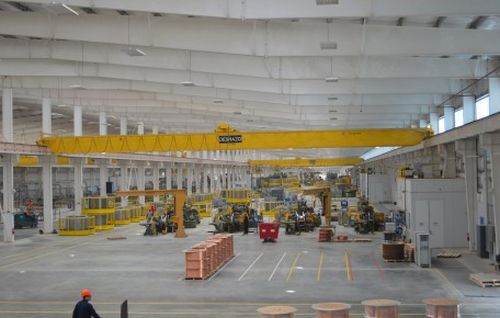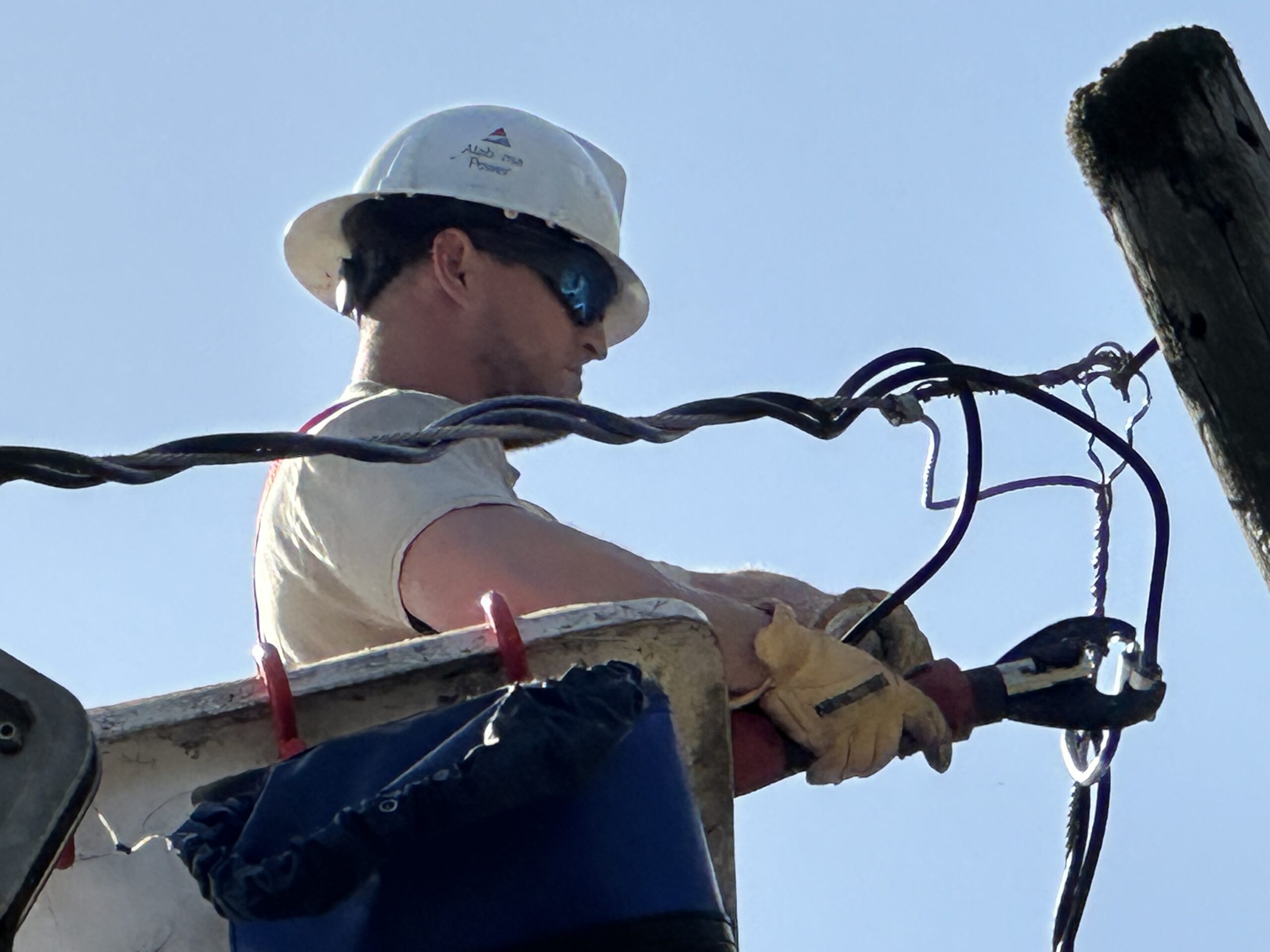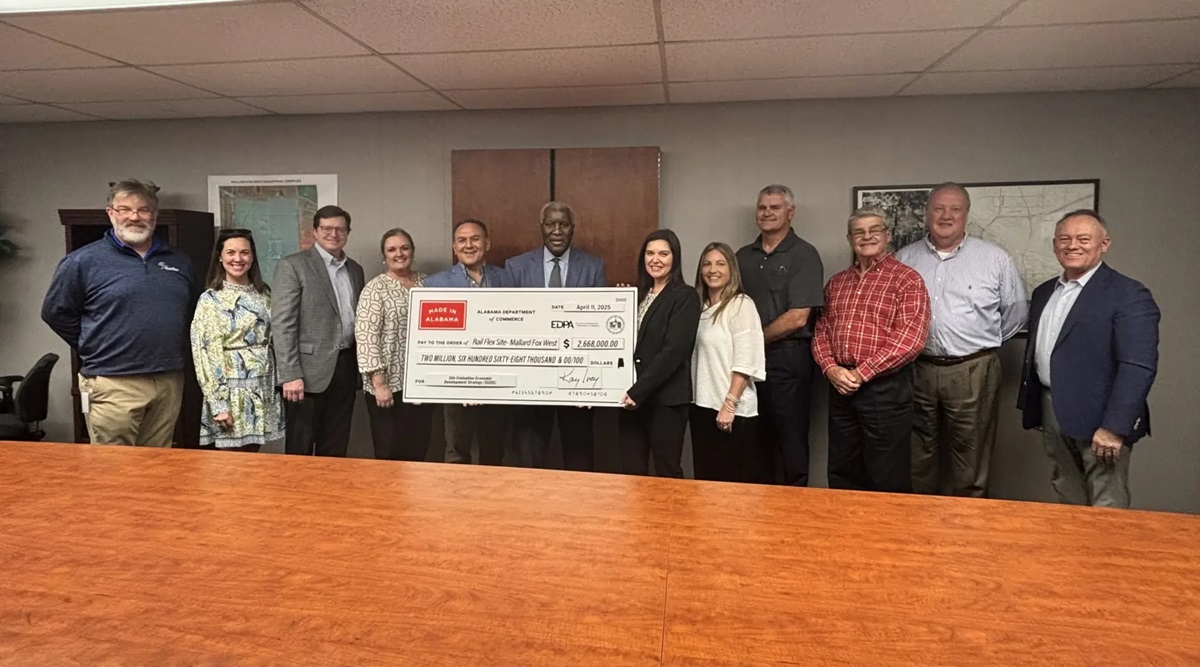Special event connects Alabama and China business leaders

Alabama and China are already successful business partners, accounting for $3.5 billion in trade annually between the state and the country. But officials believe there is room for additional trade and hopefully increased capital investment as more Chinese companies look to build factories in the U.S.
That was the backdrop to the recent Alabama-China Business Roundtable, part of the Birmingham International Center’s year-long celebration of the Asian country. The center picks a different country each year to highlight with special events.
Alabama Secretary of Commerce Greg Canfield talks about the importance of this economic relationship:
The Alabama-China Business Roundtable coincided with Cui Tiankai’s visit to Birmingham last week. Cui is China’s ambassador to the U.S. A large delegation of Chinese business leaders also attended the roundtable.
The event included breakout sessions where Chinese delved deeper into areas such as agriculture, automotive, energy and investment.
Alabama Power leaders offer support
Alabama Power was well-represented in the energy breakout, including Danny Glover, vice president of Power Delivery and Distribution; Ken Novak, vice president of Economic and Community Development; Nick Sellers, vice president of Regulatory and Corporate Affairs; and Tony Smoke, vice president of Marketing.
“As we continue to help position the state of Alabama as the ‘manufacturing capital of the U.S.,’ it’s important to develop and strengthen relationships with China,” Sellers said. “They currently hold the top spot as the fastest growing economy in the world. And India is moving up fast. We want to find ways to continue to help state leaders recruit businesses from both countries and look for ways to invest in each other. It’s good for Alabama, good for Alabama Power and good for America.”
Li Qiangmin, the consul general of China in Houston, spoke about the importance of expanding the economic relationship between China and the U.S.
Qiangmin: "U.S.-China is … the most important relationship in the world." #BICAlabamaChina
— Michael Tomberlin (@LTC_Chicken) January 23, 2015
“U.S. and China is the most important relationship in the world,” Li said.
He said the best way to build on that relationship is for the people of the two countries to grow in their understanding of and interaction with each other.
“We need to increase people-to-people contact,” Li said. “There is an old Chinese saying that says, ‘It’s better to see something once than to hear about it 100 times.’”
Qiangmin: Old Chinese saying " It's better to see something once than hear about it 100 times." #BICAlabamaChina
— Michael Tomberlin (@LTC_Chicken) January 23, 2015
That applies to more Chinese businesses getting to see and know Alabama, Li said.
“Frankly, Chinese people are not very familiar with Alabama,” he said.
Events like the business roundtable are helping address that, Li said.
Why business in Alabama just makes good sense
Alabama Commerce Secretary Greg Canfield told those gathered at the roundtable at The Club that there are numerous reasons why Chinese companies should consider coming to Alabama – not just to see it, but to establish businesses in the state as they look to the U.S. to make foreign direct investments.
Both Li and Canfield mentioned Golden Dragon Copper, which invested $100 million in Wilcox County to build a copper tubing plant that now has 150 workers but expects to have 300 by the end of the year.
Canfield said Golden Dragon is the state’s first “greenfield” project from China, meaning it’s the first Chinese company to build a new plant from the ground up in the state.
When Mercedes-Benz decided to build its first U.S. plant in Tuscaloosa County, Canfield said the automaker had the same unknown opportunities and perceived risks that many Chinese companies may be considering before coming to Alabama.
In addition to noting Mercedes’ growth and success, Canfield tried to alleviate any concerns by focusing on some of Alabama’s advantages.
He pointed to the deep-water port in Mobile along with Alabama’s numerous navigable waterways, railroads and interstate highways. The state’s robotics park near Decatur and its workforce training centers throughout Alabama, along with other work by AIDT, should all be attractive to Chinese businesses, he said.
Canfield said the Alabama Workforce Council is an important component to addressing any worker concerns Chinese companies may have about the state.
Good relationships precede good business
In an interview after his remarks, Canfield said it’s hard to overstate how important China’s relationship with Alabama has become.
“We’ve found our relationship with China is taking on an ever-growing importance in the state of Alabama,” Canfield said. “The trade relationship is critically important. They remain our second largest trade partner. We export $2.5 billion of goods made in Alabama by Alabama hands by Alabama companies every year and we import $1 billion of value in goods made in China. So we actually have a net surplus in our trade balance with China, which is unusual.”
Mike Randle, owner and publisher of Southern Business & Development magazine and the online Randle Report, told state economic developers gathered in Montgomery that Chinese companies will be building more plants in the U.S. over the next few years.
Speaking at the Economic Development Association of Alabama’s 2015 Winter Conference, Randle said a rising middle class and rising wages in China have already led to many U.S. companies “re-shoring” from China to the U.S. – particularly the South and Midwest. That is likely to be followed by more Chinese companies determining it’s less costly to produce goods in the markets where they are sold, which eliminates shipping costs, Randle said.
That’s welcome news to Canfield, who would like to see Alabama duplicate the success it had with Golden Dragon.

Golden Dragon Precise Copper Tube Group Inc manufactures and sells precise copper tubes in China and internationally.
“As it relates to China as an inbound investor, we’re taking this in a fashion that is very strategic, a long-term view,” he said. “We’re not doing it really fast. We’re trying to identify companies that represent real opportunities to create real capital investment and create real jobs that have meaning for Alabamians. It’s a win-win when we do it that way.”
Having the business and economic component as a part of the Birmingham International Center’s tribute to China was vital, said Iris Gross, executive director of the Birmingham International Center.
“Through our Spotlights, the Birmingham International Center facilitates cultural competency in education and in commerce,” Gross said. “On the commercial side, Alabama competes with other states and other nations as exporters, so it is crucial for our business leaders to be properly equipped for the nuances of international trade. These nuances are not necessarily intuitive, so we bring experts and decision makers together in one spot to learn from each other.”
– Michael Tomberlin





